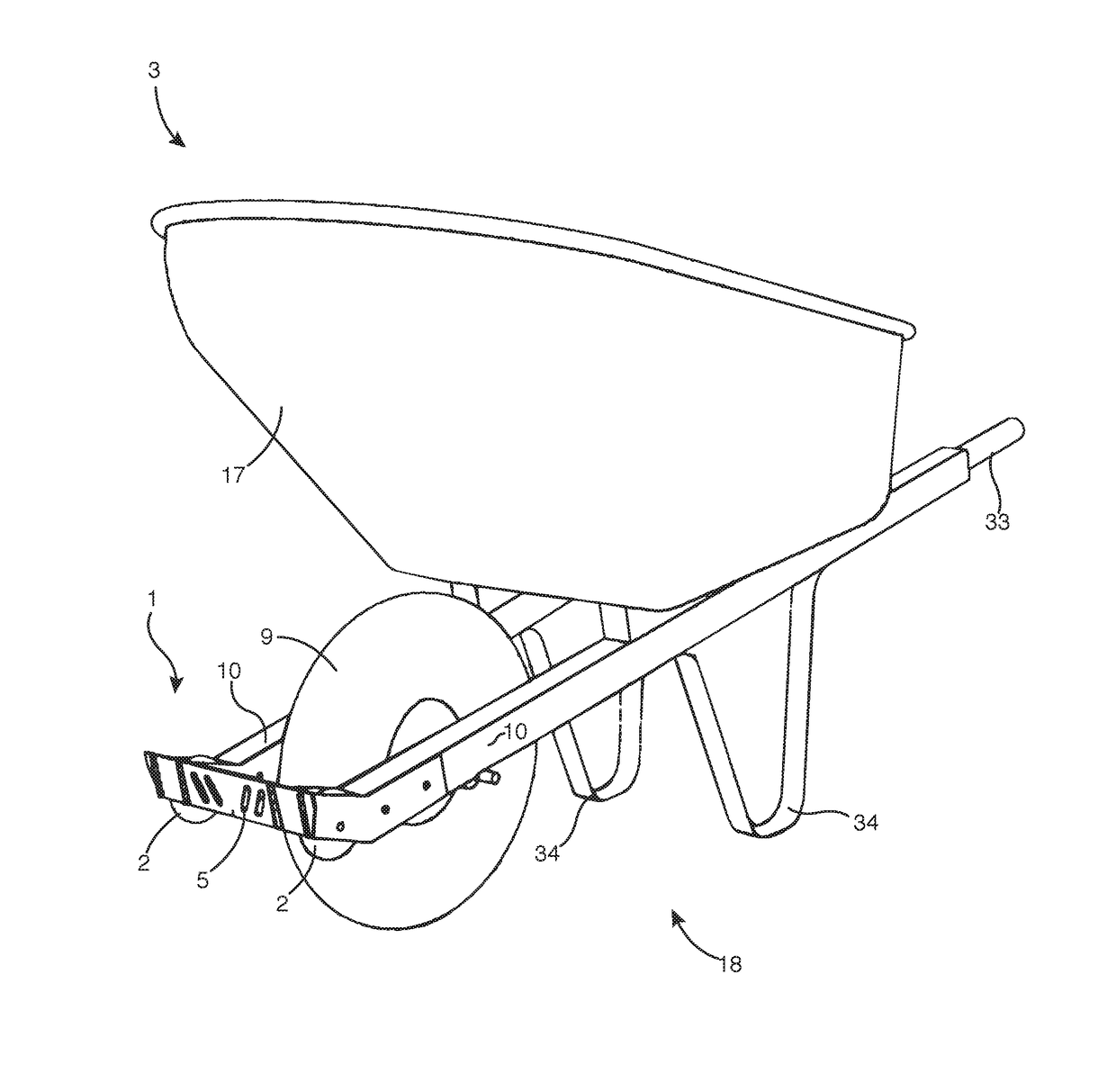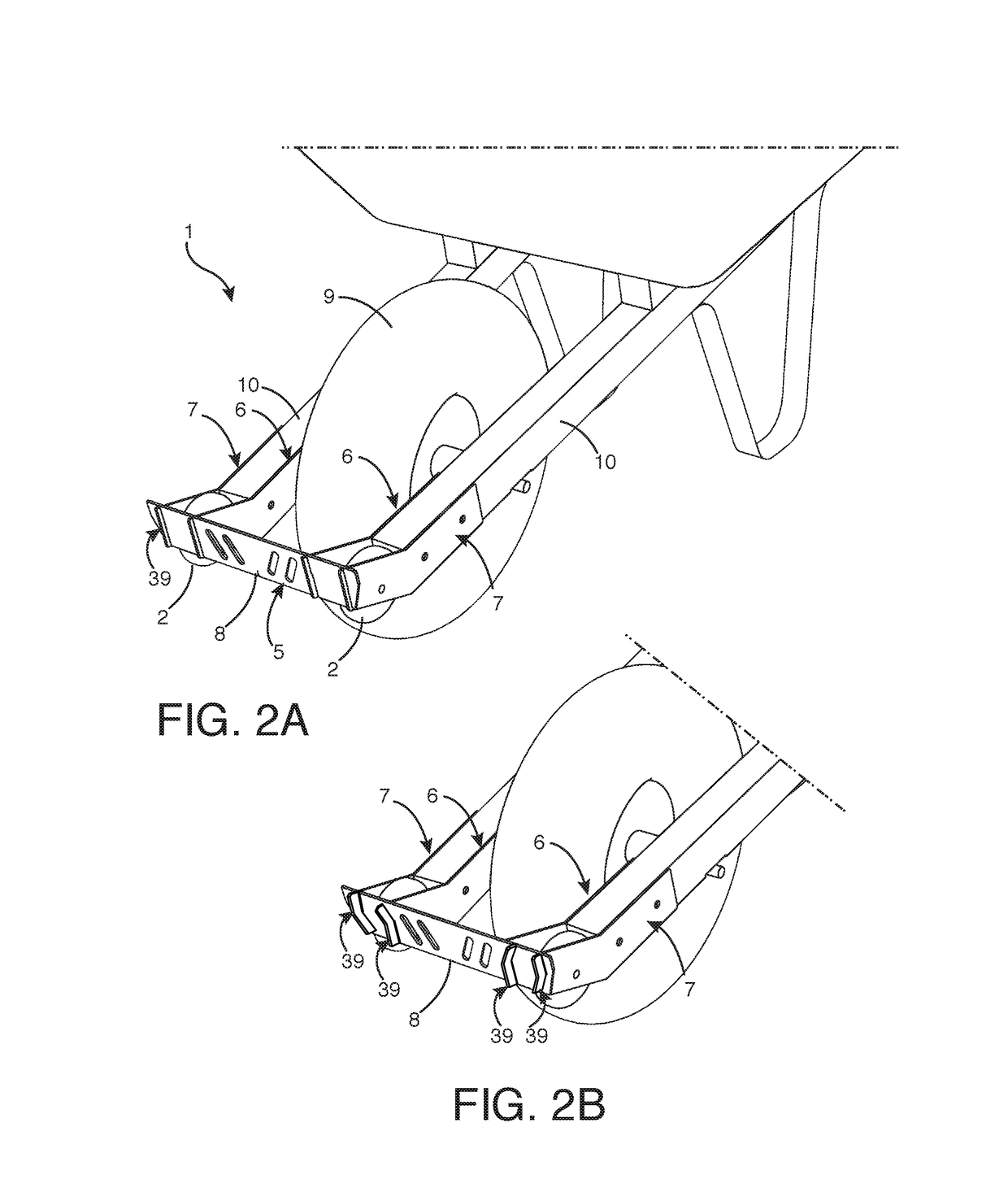Method and apparatus for wheelbarrow front end protection
a technology for front end protection and wheelbarrows, applied in the field of wheelbarrows, can solve problems such as potential damage to surfaces or structures, and damage to surfaces or structures, and achieve the effect of preventing unintentional tipping of wheelbarrows and reducing property damag
- Summary
- Abstract
- Description
- Claims
- Application Information
AI Technical Summary
Benefits of technology
Problems solved by technology
Method used
Image
Examples
Embodiment Construction
[0041]Embodiments of the invention include a wheelbarrow. In certain embodiments, a wheelbarrow 3 has a pan 17, a frame 18, a main wheel 9, and a bight or bumper. As shown, for example, in FIG. 1 and FIG. 8A, a frame 18 has a main wheel 9 having an axle disposed between two bars 10. A wheelbarrow frame 18 has handles 33 to help to steer the wheelbarrow during use. Legs 34 attached to a lower portion of a wheelbarrow frame 18 keep the wheelbarrow upright. Still referring to FIG. 1 and FIG. 8A, a pan 17 is attached above such frame.
[0042]In certain embodiments of the invention, a bumper is attached to the front portion of a wheelbarrow. An embodiment of a bumper 1 as shown in FIG. 1, an embodiment of a bumper 24 as shown in FIG. 5, an embodiment of a bumper 25 as shown in FIG. 7, and an embodiment of a bumper 28 as shown in FIG. 8A is attached to the front portion of a wheelbarrow 3 in front of a main wheel 9. It will be appreciated that a bumper as disclosed herein can be attached to...
PUM
 Login to View More
Login to View More Abstract
Description
Claims
Application Information
 Login to View More
Login to View More - R&D
- Intellectual Property
- Life Sciences
- Materials
- Tech Scout
- Unparalleled Data Quality
- Higher Quality Content
- 60% Fewer Hallucinations
Browse by: Latest US Patents, China's latest patents, Technical Efficacy Thesaurus, Application Domain, Technology Topic, Popular Technical Reports.
© 2025 PatSnap. All rights reserved.Legal|Privacy policy|Modern Slavery Act Transparency Statement|Sitemap|About US| Contact US: help@patsnap.com



